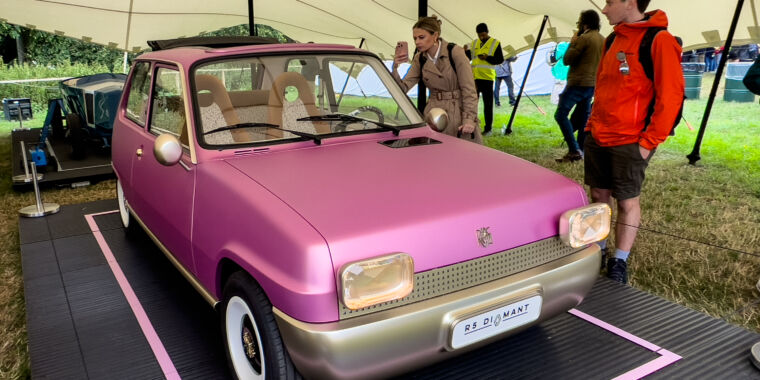I have a Volt, and I resent how few compact hybrid options there will be when I get a replacement. When I drive around, I literally struggle to see around the giant land boats cruising around. They hold up parking lots trying to stuff themselves into spaces, and if I get hit by one I’m much more likely to be injured. Average car size is kind of a tragedy of the commons. Everyone suffers when the cars get bigger, but the individuals with the dumb land boats suffer little of the cost.
tragedy of the commons
TILAW (today I learned a word):
The tragedy of the commons is a metaphoric label for a concept that is widely discussed in economics, ecology and other sciences. According to the concept, should a number of people enjoy unfettered access to a finite, valuable resource such as a pasture, they will tend to over-use it, and may end up destroying its value altogether. To exercise voluntary restraint is not a rational choice for individuals – if they did, the other users would merely supplant them – yet the predictable result is a tragedy for all.
Yes, the metaphor has fallen out of fashion for a lot of reasons, including that the guy who coined the expression turned out to be a real piece of shit, but the core concept is still a valid one.
No, there are really tangential analogies about how self-interested behavior can have negative consequences, but it is and has always been based around a bunch of numerous myths. Externalities is a better description of this.
Elinor Ostrom investigated management of the commons and the original description of tragedy of the commons was a complete lie. The commons were enclosed so that in this transitional stage of feudal lords could become businessmen that could profit off of using the land rather than taxing a peasant community living off of it. The enclosed commons is an asset to generate profit, where if enough of an increase in profit could be achieved, that could be reinvested, meant that exhausting the land would be an economically rational strategy. Where, if a peasant community is using it to sustain themselves, they have to carefully manage and steward that land so it is still producing for themselves years later, their children, and their grandchildren. The complete opposite of what the “tragedy of the commons” describes.
My dream car is a Nash Metropolitan converted to an EV.

Bro if you could get a used leaf gen one (they run around 4k), you could take that thing to a drag strip and absolutely turn some heads.
I have a friend who wants to take my gen one leaf and do a conversion. He just went to an EV mechanics course on it.
Give me a new El Camino EV with a 400 mile range and I’m in.
All my road trips are around 150 miles and there may or may not be a charger at the destination.
The article says range isn’t important…if you’ve ever looked at a map of the US, you’ll see why that’s a misguided statement.
To be fair, most people aren’t driving across the US on an even yearly basis, if ever in their lives.
Just city to city is typically at least 150mi one way. Maybe on the southern coasts, if I was really a homebody, could I get away with something under 150mi range.
There’s no way anyone in Texas is going anywhere in a standard range EV for example.
95% of trips are 30 miles or less. Of course everyone is the exception, we’re all above average drivers here.
That’s a terrible statistic…of course most of my travel happens around where I live.
If anything…that actually reveals long trips are more common than you think…For every 19 times you go to work or the store the 20th trip is significant…
In other words, if your number I right…Once to Twice a month the average person would likely require an extended range EV.






